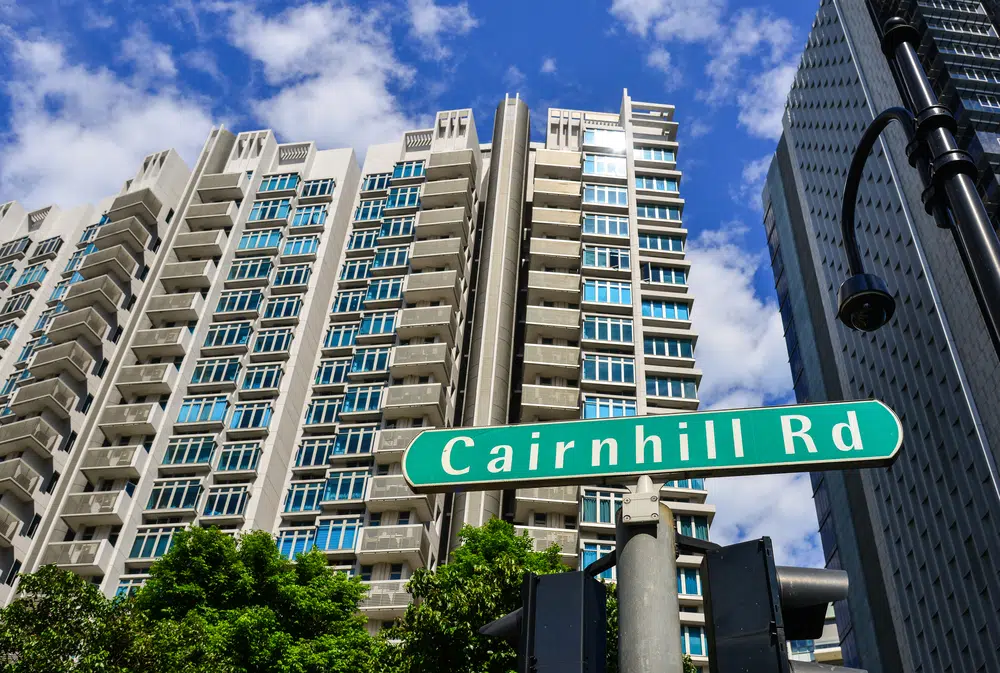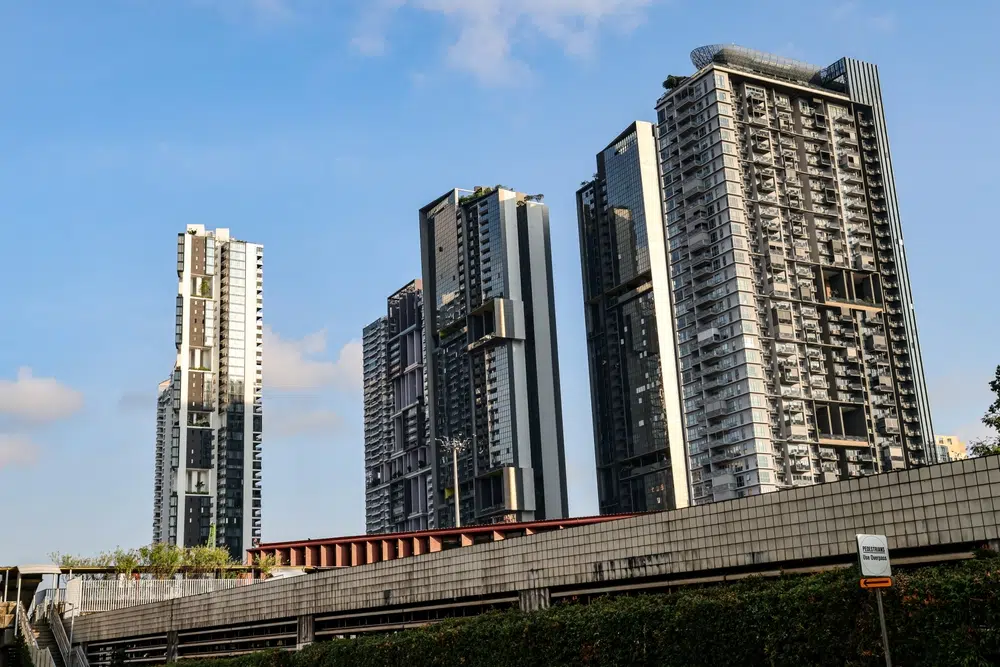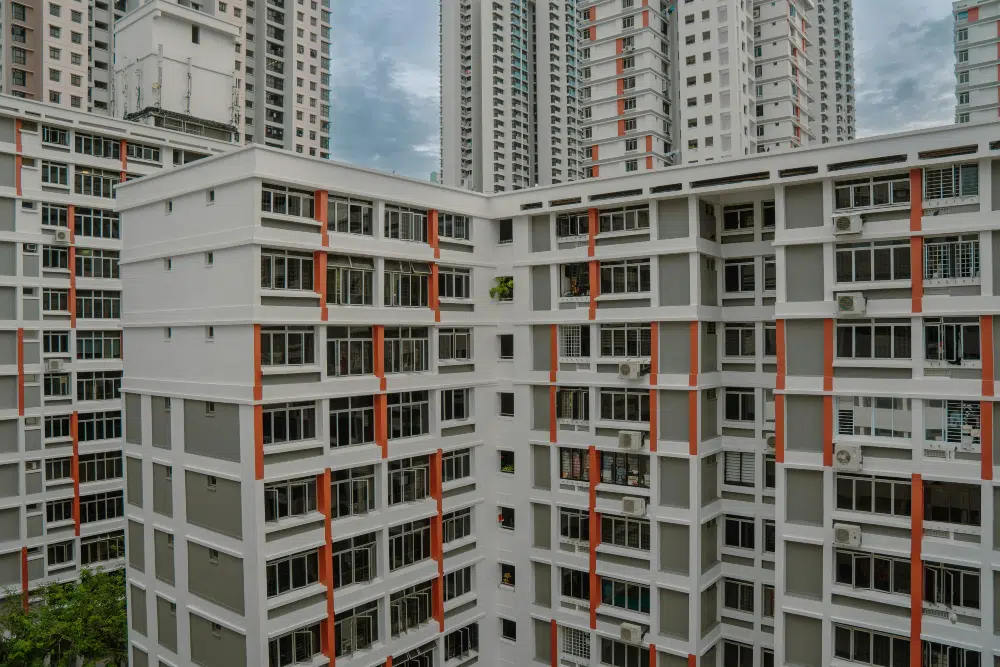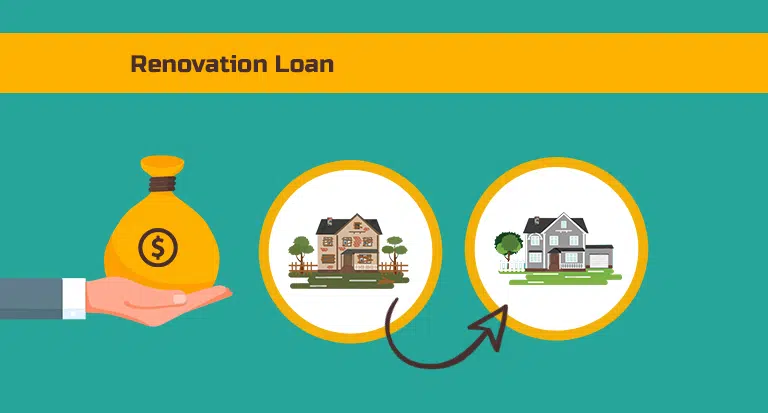
For many foreigners, Singapore, the little red dot nestled in the middle of Southeast Asia, is often seen as a global hub of opportunity, wealth, and stability. With a cityscape that blends futuristic skyscrapers with heritage shophouses, it’s no wonder that foreigners—whether expatriates, investors, or those simply enchanted by the diverse cultures—are keen to settle down here.
But before you start packing up for that dream migration, here’s a question: can foreigners actually buy property to stay in Singapore? And if so, what’s the catch?
Fret not, worried reader! In this article, let’s dive deep into the rules, costs, and smart ways to make property ownership a reality in the Lion City!
The Short Answer: Yes, foreigners can buy a property in Singapore
Good news is, yes, expats can purchase a property, but not every type that’s available in the property market.
If you’re dreaming of a landed property in Bukit Timah or a chic HDB flat in Tiong Bahru, you might be slightly disappointed. There are strict regulations, particularly for landed properties and public housing, that are in place by the government authorities to control the property market prices within Singapore.
To simplify things, let’s break it down by property type:
Properties allowed for Foreigners:
- Private condominiums and apartments
- Commercial properties (including shophouses, office spaces, retail units)
- Executive Condominiums (ECs)
(only after 10 years of Minimum Occupation Period (MOP))
Restricted for Foreigners (Needs Approval or Not Allowed):
- Landed properties (bungalows, semi-detached, terrace houses)
(Approval required from the Singapore Land Authority—SLA)
- HDB flats (Not allowed, unless you are a Singapore PR and buying a resale flat under specific conditions)
- Executive Condominiums (ECs) within the first 10 years
(Only available to Singaporeans and PRs during this period)
Who Counts as a Foreigner in Singapore’s Property Market?

With the main question clarified, we now trickle down on what exactly falls into the “foreigner” category when it comes to buying property in Singapore?
In a nutshell, if you’re not a Singapore Citizen (SC) or a Singapore Permanent Resident (PR), you’re automatically classified as a foreigner under Singaporean property laws.
To break it down a little more:
- Singapore Citizens (SC): Born and bred in Singapore, or naturalised, which is a process of becoming a citizen after birth. You get the most property privileges as a local.
- Singapore PRs (Permanent Residents): Foreigners who have been granted permanent residence status which allows him/her to reside in Singapore on a permanent basis, but some restrictions.
- Foreigners, including Employment Pass (EP) holders, S Pass holders, Dependant Pass holders, Work Permit holders, and even tourists. Basically, anyone who isn’t a citizen or PR.
- Companies and Entities: If a company or trust wants to buy property, it is also considered a “foreigner” unless it meets certain local ownership criteria.
For foreigners, getting onto the Singapore property ladder isn’t impossible, but it does come with extra costs, taxes, and limitations (especially with a significant 60% Additional Buyer’s Stamp Duty (ABSD) on top of your residential property price, which we’ll talk more about later).
Let’s dive deeper on what Singaporean properties you can actually buy.
What Properties Can Singaporeans, PRs, and Foreigners Buy?

Depending on whether you’re a Singapore Citizen, PR, or Foreigner, your options in the property market will vary. To make things easier, here’s a quick cheat sheet for what each group can purchase:
| Property Type | Singapore Citizens | PRs | Foreigners |
| HDB BTO (New Flats) | ✅ Yes | ❌ No | ❌ No |
| HDB Resale Flats | ✅ Yes | ✅ Yes (with a Singaporean spouse or after 3 years as PR) | ❌ No |
| Executive Condominiums (New) | ✅ Yes | ✅ Yes (after 3 years as PR) | ❌ No |
| Executive Condominiums (Resale) | ✅ Yes | ✅ Yes | ✅ Yes (after the 10-year MOP when it becomes private) |
| Private Condominiums & Apartments | ✅ Yes | ✅ Yes | ✅ Yes |
| Landed Property | ✅ Yes | ❌ No (unless with special approval) | ❌ No (needs SLA approval) |
| Strata-Landed Housing (e.g. Cluster Homes) | ✅ Yes | ✅ Yes (with approval) | ✅ Yes (with approval) |
Singapore Property Types & Eligibility in Detail
With a clearer idea on what Singaporean properties you can or cannot purchase as a foreigner, let’s get into the nitty gritty details:
- Private Condos & Apartments
This is the easiest and most accessible option for foreigners. No approvals needed, and you can ideally own the property indefinitely if they are freehold properties. Condos come in various tiers:
- Mass-market condos, which as the name suggests, are affordable condominiums that are typically located in suburbs or developing regions within Singapore, such as Jurong East or Tampines. Basic facilities and amenities are available, including a swimming pool and a small gym, but not as fanciful as the other two tiers
Examples include: The Clement Canopy, The Garden Residences - Mid-tier condos are condominiums that are situated near prime districts within Singapore, such as Bukit Timah, Newton, and Novena, offering city-fringe living at a lower cost. Facilities and amenities here are relatively more diverse, such as a tennis court, function rooms and a sauna.
Examples include: The M at Bugis, One Pearl Bank - Luxury/high-end condos are condominiums located in prime areas of Singapore, including the Central Business district, Marina Bay, and Orchard. Prices may vary, but are often on the higher end of the spectrum. However, the facilities and amenities here match the price tag, with sky gyms, concierge services, and even direct links to shopping malls.
Examples include: Wallich Residence, The Marq on Paterson Hill
Based on a recent analysis conducted in 2024, average condominium prices range from $1,200 to $3,000 per square foot (PSF) depending on the tier, location and exclusivity.
- Landed Property (Restricted)
If you prefer staying on landed properties such as bungalows or terrace houses, you’ll need Singapore Land Authority (SLA) approval under the Residential Property Act. The approval process is usually strict—generally, you must be a Permanent Resident (PR) of at least 5 years and have made significant economic contributions to Singapore, which will be determined by tax assessments on your employment income.
As a side note, while Sentosa Cove is the only place where foreigners can buy landed property more easily—it’s still subject to SLA’s approval.
- HDB Flats (Public Housing)
As HDB flats are subsidised government housing meant for Singaporeans and PRs, foreigners, unfortunately, are not able to buy HDB flats, including resale ones on the property market.
However, If you’re a Singaporean PR, you can still buy a resale flat with a fellow PR or Singaporean spouse, but there are still conditions that have to be met.
- Executive Condominiums (ECs)
Think ofECs as a mesh of HDB and private condominiums, created to cater to Singaporeans who aspire to live in private properties with unique designs and facilities, priced at affordable ranges.
Foreigners can only purchase ECs after they pass their 10-year mark, when they become fully privatised after that, and .
Thus, as a quick summary, if you’re a foreigner looking to settle down in Singapore with a purchased property, you’re mostly looking at private condos, resale executive condos that have privatised after 10 years, and certain landed properties if you’ve managed to get approval from SLA.
The Big Cost: Additional Buyer’s Stamp Duty (ABSD)
You might have heard of the term “ABSD” floating around in the Singaporean property market. To clarify, Singapore imposes Additional Buyer’s Stamp Duty (ABSD) on property purchases to regulate demand and ensure affordable housing for Singaporeans.
Here’s a quick cheat sheet on how ABSD rates affect property purchases in Singapore depending on the profile of the buyer:
| Profile of Buyer | ABSD rates on or after 27 Apr 2023 |
| Singapore Citizens (SC) buying first residential property | N/A |
| SC buying second residential property | 20% |
| SC buying third and subsequent residential property | 30% |
| Singapore Permanent Residents (SPR) buying first residential property | 5% |
| SPR buying second residential property | 30% |
| SPR buying third and subsequent residential property | 35% |
| Foreigners (FR) buying any residential property | 60% |
| Entities buying any residential property | 65% |
It is important to note that foreigners pay a significant 60% ABSD on top of the standard Buyer’s Stamp Duty (BSD). To help put things in perspective, that means that if you’re intending to buy a $2 million private condo, you’re looking at an extra $1.2 million in stamp duty fees.
However, if you hold citizenship from certain Free Trade Agreement (FTA) countries like the US, Switzerland, Norway, or Iceland, you get the same rate as Singapore Citizens—0% ABSD for your first property.
Living In vs. Investing: Owner-Occupied vs. Non-Owner-Occupied Properties
Now, let’s talk about what you’re intending to do with the property in Singapore—are you buying your next cushy home, or are you looking at this as an investment property instead?
Depending on the purpose of your Singaporean property, there will be certain regulations and property tax rates that may be applicable to you.
For the latter (property tax rates), this will be determined by your property’s Annual Value (AV), which is determined by the Inland Revenue Authority of Singapore (IRAS). This is considered the estimated yearly rental income that your property can potentially generate, based on the current market conditions.
Let’s take a look at the difference between the two available options:
Owner-Occupied Residential Properties
If you’re buying to live in the property, this is defined as an “owner-occupied home”.
It’s important to note that owner-occupied residential properties enjoy significantly lower tax rates when compared to its non-owner-occupied counterpart.
Here’s a quick sheet on how owner-occupied residential properties are taxed:
| Annual Value ($) | Tax rate effective | Property Tax Payable |
| First $12,000 Next $28,000 | 0% 4% | $0 $1,120 |
| First $40,000 Next $10,000 | – 6% | $1,120 $600 |
| First $50,000 Next $25,000 | – 10% | $1,720 $2,500 |
| First $75,000 Next $10,000 | – 14% | $4,220 $1,400 |
| First $85,000 Next $15,000 | – 20% | $5,620 $3,000 |
| First $100,000 Next $40,000 | – 26% | $8,620 $10,400 |
| First $140,000 Above $140,000 | – 32% | $19,020 |
Non-Owner-Occupied Residential Properties
If you’re buying a property as an investment (i.e., renting it out for passive income), then it’s considered as a “non-owner-occupied property”.
Similarly, here’s a quick sheet on how non-owner-occupied residential properties are taxed:
| Annual Value ($) | Tax rate effective | Property Tax Payable |
| First 30,000 Next $15,000 | 12% 20% | $3,600 $3,000 |
| First $45,000 Next $15,000 | – 28% | $6,600 $4,200 |
| First $60,000 Above $60,000 | – 36% | $10,800 |
Financing Options for Foreign Buyers
So, you’ve got your eyes on a sleek condo in Orchard or a penthouse in Marina Bay with picturesque views, but there’s one tiny catch—how do you actually pay for it as a foreign buyer?
Here are a few options available
Option 1: Pay in Full Cash
If you’ve got deep pockets, you can pay for the property in full with cash. This means
- No dealing with banks or home loan approvals.
- No loan interest payments
- Faster and smoother transaction process.
However, it is often advised that even if you have the cash to make the purchase, it is often wise to use it to finance a part of the purchase, so that you have some liquidity for renovations, investments, or a fund of sorts during emergencies.
Option 2: Take Out a Home Loan
For most property buyers in Singapore, financing a property by getting a home loan from a bank is often the most common route taken.
As a foreigner looking to buy a property in Singapore, there are certain things that you should be aware when applying for a home loan here:
- Loan-to-Value (LTV) Limit: Loan-to-value limits placed on home loans given by banks operating within Singapore usually means that as a property buyer, you can only borrow up to 75% of the property value (if you have no other outstanding loans).
- Varying Interest Rates: Some international banks operating in Singapore, like HSBC, Citibank, UOB, and DBS, have foreign-friendly home loan packages that you can opt for a better deal. Be sure to do your research before agreeing on the right home loan for your needs.
- Income & Credit Requirements: As it’s often mandatory by most home loans during the application stage, you’ll need to prove your income stability, especially if you’re not employed in Singapore, to ensure that you will not default on your repayments.
Option 3: Using a Singapore Company (For Property Investors)
If you happen to be an investor, you can choose to buy a property through a locally registered company. This has some tax and legal benefits, but also comes with higher corporate taxes and compliance costs, including ABSD (at 65%) and a lower LTV limit (up to 15%).
This option is usually for serious property investors, not casual homebuyers, as it usually works best if you’re buying multiple investment properties and are keen on managing them under a business structure, instead of being tied to a homeowner’s name.
Step-by-Step: How to Buy a Property in Singapore as a Foreigner
With all that said, if you’re a foreigner and are ready to take the plunge into Singapore’s property market, here’s how you get started, step-by-step:
- Check Your Eligibility
Before you even start browsing listings, check what you’re allowed to buy (refer to the property types table from earlier).
As a quick refresher, foreigners are able to purchase privatised condominiums, landed homes only with SLA’s approval, but not HDB flats.
- Get Your Finances in Order
Before making an offer, ensure that your finances are secure before committing:
- Get a bank loan pre-approval from a bank if you’re taking a loan.
- Calculate the stamp duties (remember, ABSD for foreigners is 60%).
- Plan your down payment in advance (usually 25% upfront if taking a bank loan and if first time purchasing property in Singapore).
As a quick tip, if you’re intending to transfer money from overseas, watch out for currency exchange rates and bank fees that may affect your finances.
- Find Your Dream Property
Now, the fun part—house hunting!
- Use real estate sites like PropertyGuru, 99.co, and EdgeProp to browse listings.
- Work with a trusted local property agent (a good property agent would know the ins and outs of foreign buyer rules, and will help you navigate through the complicated procedures).
- It’s always good practice to visit desired properties in person before making an offer, to have an idea of what the property looks like.
- If you’re planning to rent out the place, check the rental yield in that area first as certain districts may differ in terms of trends and upcoming nearby projects.
- Make an Offer & Sign the Option to Purchase (OTP)
Once you find “the one”, it’s time to make it official:
- Negotiate the price with the seller.
- Sign the Option to Purchase (OTP), which are 1% fees based on the property’s purchase price and is typically negotiable between parties.
- Pay the option fee within two weeks to confirm the deal and make it legally binding.
As a general rule of thumb, always check for hidden costs (maintenance fees, property tax, etc.) before signing the OTP to ensure that you won’t trap yourself in a property nightmare scenario.
- Handle Legal & Stamp Duty Payments
Here’s where the paperwork begins to pile up:
- Pay Stamp Duty (BSD + 60% ABSD for foreigners for first-time buyers).
- Get SLA approval (if you are looking to purchase landed property in Singapore).
- Engage a local lawyer to handle any legal documents, if needed, as they are able to advise you on how to navigate the legal procedures instead of figuring it out on your own.
For stamp duties, it’s always better to factor these costs into your budget from the start to avoid any unwanted surprises.
- Secure Your Home Loan & Complete the Purchase
If you’re financing with a bank loan:
- Finalise the loan agreement with your bank and ensure that you’ve accurately given any necessary particulars and details.
- Transfer the remaining funds to the seller to complete the purchase.
- Get the keys to your new home!
If you’re keen on amping up your newly purchased property, consider hiring an interior designer or renovation contractor to make your new home more cosy, or increase its rental value for potential buyers.
- Move In or Rent It Out!
Congratulations! You’re now a proud property owner in Singapore. Depending on your plans
- If you’re living there: It’s time to furnish and decorate your place with your desired interior designer or renovation contractor, and move in once everything’s completed.
- If you’re renting it out: Find a tenant (or get a property agent to manage it, as keeping your property well-maintained will mean that potential tenants are willing to pay premium prices to live in good conditions).
Final Thoughts: Is It Worth It?
Singapore remains a stable and lucrative real estate market for wealthy investors. The city offers political stability, strong legal protection for property owners, and high rental yields that will surely be hard to find elsewhere around the world.
However, for the average foreigner, the 60% ABSD makes property ownership extremely expensive. Unless you qualify for an exemption or plan to become a PR, renting a place might be the smarter option for your stay in Singapore.
If you’re set on owning property here, it’s always best to work with a local property expert to navigate the rules instead of going at it on your own.
Who knows? With the right timing and planning, you might just find your dream home in Singapore!



